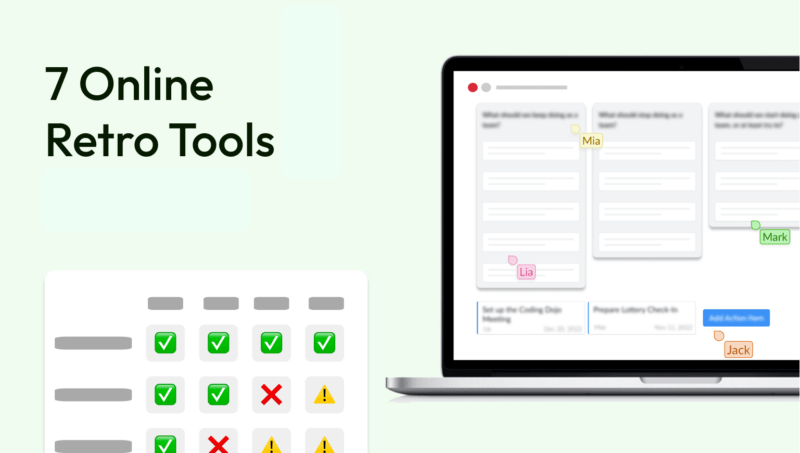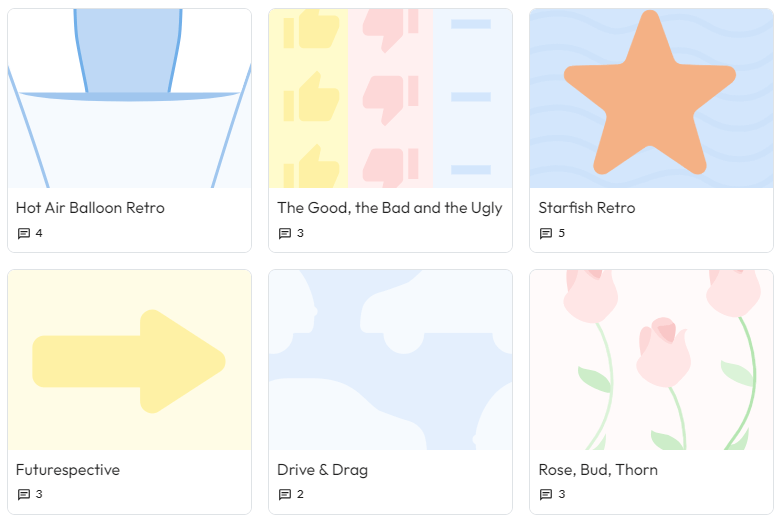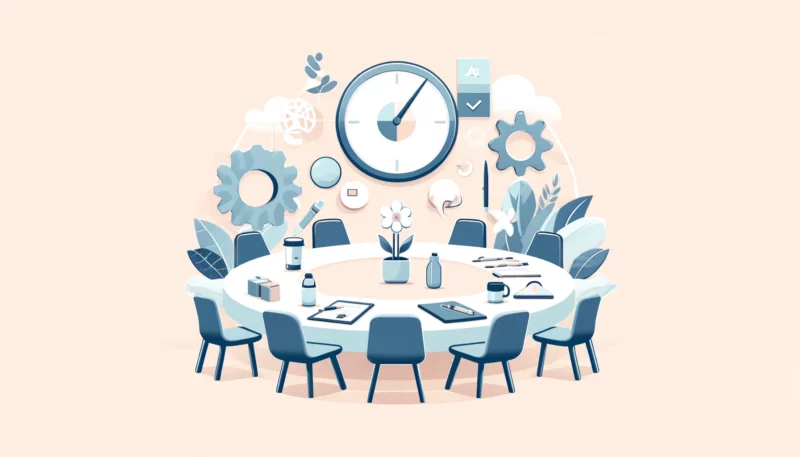Teams where collaboration doesn't work well are less productive than everyone would be. Strictly speaking, you cannot call them a “team”.
Are you ambitious to develop your team into a real team? You may have already started and want to target the process even more specifically & #8211; and measurable & #8211; push ahead? Then you are right here.
Echometer is a software tool to continuously develop as a team based on psychological findings. Our tool supports the moderation of varied retrospectives (What are retrospectives?). In this article we explain the content of one of our team templates.
What makes good teamwork
In order to develop yourself into a real team, there are essentially three aspects that you can regularly reflect on with our tool.
Regular & constructive communication
It should become a habit to question your own meeting culture. Little is more unpleasant than regular team routines that don't really get any further. Often it is such “historically” grown behavior patterns that prevent the right teams from being formed. Ask (if necessary with our template) the following questions to determine whether your meeting culture suits you:
- Does everyone come to meetings well prepared and can everyone get actively involved?
- Do your meetings leave room for new ideas and creativity?
- And do you take enough time for the long-term perspective?
Community solution orientation
As a team you have to pull together & #8211; in good and in bad times. You can tell whether you are facing profitable and collaborative difficulties by asking yourself the following questions:
- Does everyone know where you are when you reach your goal?
- Does your work help each other?
- Do you share your knowledge with each other?
And regarding your feedback culture:
- Is it part of your everyday life to give each other feedback?
- Is the feedback from your teammates regularly a valuable food for thought for you?
Appreciation and psychological security
Good teams live from the fact that all team members are committed to the team goals. In return, of course, they expect the others to do what they can and that they are valued for their efforts. Appreciation and (psychological) security are reflected on different levels: weaknesses are not condemned, but belong to them. You help each other. In addition, you appreciate the contributions of your colleagues and you remain objective and constructive in the event of conflicts. Does that apply to you?
Conclusion
Whether you actually live these targets in everyday life can be checked by placing the aspects described above. At best, you use regular team retros to reflect on these aspects & #8211; for example with our corresponding retro template.
Of course, team building does not happen overnight. Because with change, many people have their problems. But the "ability to change" is in the VUCA World important. The side effect of this template is accordingly that your ability to change is trained.
The influence of the retros for this should not be underestimated. Try to question yourself and your collaboration and you will see how easy it can be to take your teamwork to a new level!








